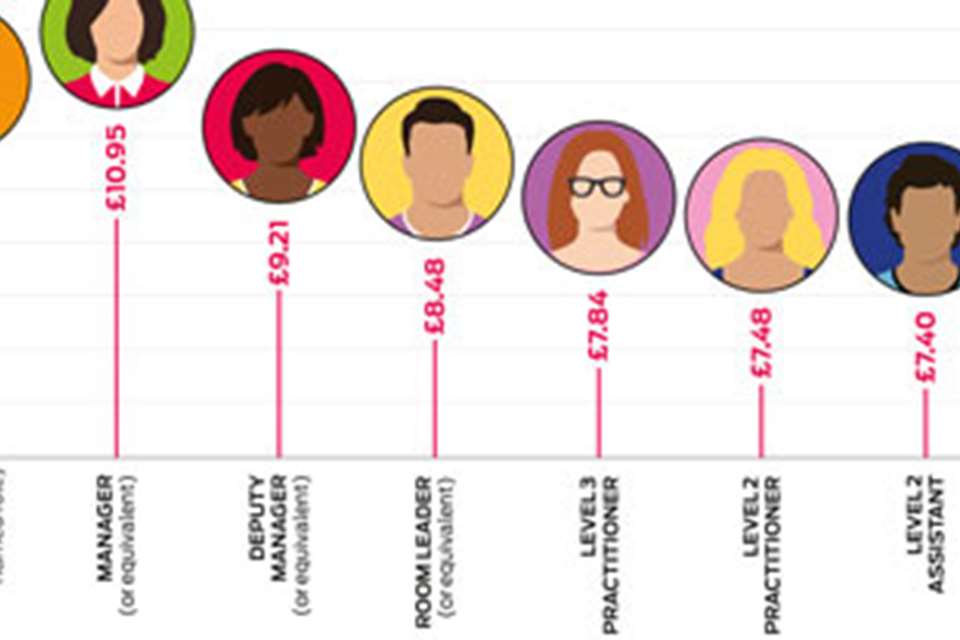Early Years Pay and Conditions survey: stagnation triggers brain drain fears
Jo Parkes
Monday, October 17, 2016
Early years wages remain significantly below the national average and out of line with inflation, exclusive research by Nursery World and the Pre-school Learning Alliance reveals.

Ranging from £6.93 an hour for the lowest paid practitioners, to management pay of £10.95, even the highest earnings were nearly three pounds an hour beneath the £13.50 average across all sectors, as found by the Early Years Pay and Conditions Survey 2016.
The sector is renowned for its low pay, but the news of stagnation comes with warnings of a talent drain that is at odds with the Government’s pledge to drive up standards.
A workforce strategy has yet to be published by the Department for Education, which is carrying out a £300m reform of the free entitlement.
Neil Leitch, chief executive of the Alliance, described the results as ‘unsurprising’, given that early years funding has failed to reflect rising business costs and minimum wage increases.
‘Quality early years provision is only possible with a quality early years workforce – but unless providers can afford to pay their staff an attractive wage, we are increasingly likely to see talented practitioners choosing to leave the early years,’ said Mr Leitch.
‘Add to this the continued impact of the Level 3 GCSE requirements on recruitment level in the sector and it’s clear that business owners are really going to struggle going forward unless something changes.’
Example average earnings by role:
- Early years teachers or professionals: £10.01
- Room leader: £8.48
- Level 3 practitioner: £7.84
There were some anomalies by region. Despite official statistics suggesting average earnings and living costs in Yorkshire and Humberside are among the lowest, providers reported relatively high pay.
There, unqualified practitioners earn more than in any other region including London, receiving hourly rates of £7.30.
In London, managers earn on average £13.54, Level 3 practitioners £8.56, and unqualified workers £7.01.
Mr Leitch added, ‘It’s vital that government takes stock of these findings and takes the action needed to tackle this worrying trend.
‘This means both reversing the calamitous GCSE rule and ensuring that early years funding increases in line with cost pressures going forward. Anything less, and the sector risks losing the very practitioners currently keeping it afloat.’
The research also looks at factors behind salary levels, along with hours worked, recruitment, staff profiles, training and other benefits.





